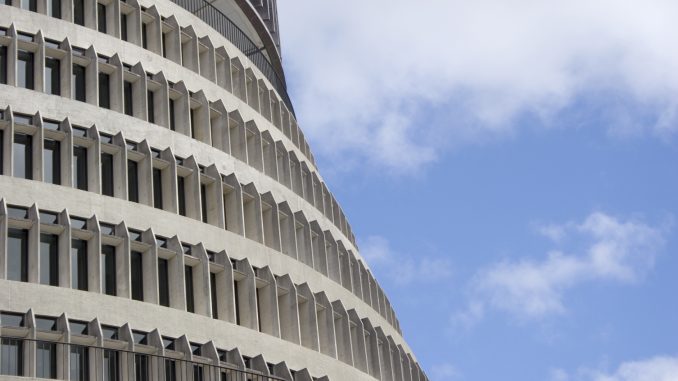
So long as the fundamental structures of the economy remain unchanged, state action will disproportionately benefit capitalist interests at the expense of everything else.
Maisano (2016, p. 14).
The modern state is at the heart of political decision-making in every nation in the world, and nations themselves are often referred to as nation-states. And yet, historically speaking, the state is a fairly recent development. The origins of the settler colonial state of New Zealand is complicated by its former status as a Crown Colony of the British state, the continuing controversy over the meaning of Te Tiriti o Waitangi (signed by many, but not all, Māori chiefs in 1840) and its current status as a constitutional monarchy. Nonetheless, to all intents and purposes, Aotearoa New Zealand has been functioning as an independent, sovereign state since 1947.
But what is the state? In whose interests does is operate, how does it maintain its legitimacy and what should the attitude of socialists be to the modern state?
Video talk
Required reading
Maisano, C. (2016). Isn’t America already kind of socialist? (pp 12-21) In Bhaksar, S. (Ed). The ABCs of Socialism. London: Verso.
In this chapter Chris Maisano discusses the state in the context of the USA, a country that has a long history of hostility towards state interventions. Maisano’s chapter is helpful in highlighting the contradictory nature of the state from a socialist point of view: on the one hand, it offers services and resources to citizens in need, though often of a very residual and rationed nature; on the other, it acts in the interests of the capitalist class by controlling the right to strike, surveilling activists and criminalising dissent. In particular, he points out that, due to its dual nature, it is deeply mistaken to equate the state with socialism:
It’s one thing to identify public libraries with socialism. They operate according to democratic principles of access and distribution, providing services to all regardless of one’s ability to pay. They would be one of the most important institutions in any socialist society worthy of the name. But it’s quite another to include the police. If the forces responsible for killing Sandra Bland, Eric Garner, and Rekia Boyd exemplify socialism in action, then no person who wants freedom and justice should be a socialist. (p.15)
His article also highlights the reformist error that all we need to do to achieve socialism is to “keep gradually expanding government” (p.15) and to “elect sympathetic politicians to office and let them legislate their way to even more socialism” (p.15). To cut through the myths of building socialism by reform Maisano proposes that socialists ask themselves key questions about the activity of the state:
- Does (this or that state intervention) reinforce or undermine the power of those who own capital?
- Does it increase our subordination to market discipline or offer us more freedom from its demands?
Questions to discuss
- Maisano’s chapter offers several examples where large scale government interventions that seemed to benefit the poor, in fact helped to subsidise private businesses. Can you think of similar initiatives in New Zealand?
- In what ways does Maisano suggest that powerful elites act to influence government decision-making? Are these kinds of influence also evident in the New Zealand context?
- What does Maisano suggest that socialists need to do if they want to shift the balance of power away from capital and towards labor?
Additional reading
Barker, C. (2019). Revolutionary reflections: Notes on capital and the state.
Lenin, V.I. (1917). Chapter one: The State and Revolution.
Mandel, E. (1969). Marxist theory of the state.
Rosamond, B. (2017). Nation destroying: Sovereignty and dispossession in Aotearoa New Zealand. Onehunga, New Zealand: Economic and Social Research Aotearoa.
Image credit: Keith Miller
